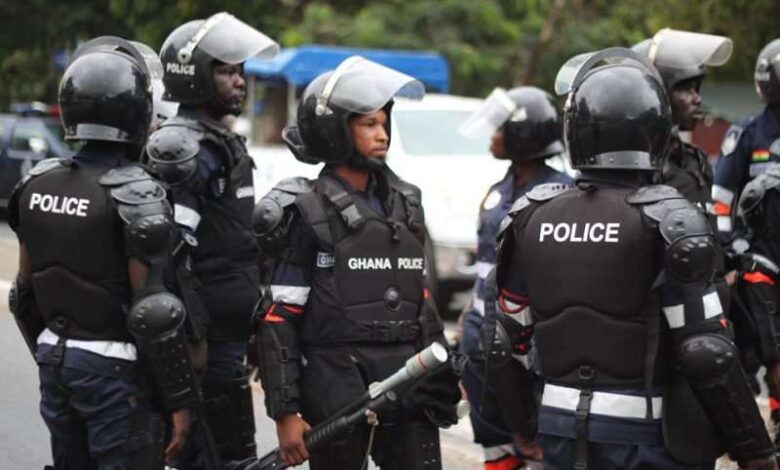
The Ahafo Region, with only six constituencies, has become a key political hotspot. The police are focusing on this region ahead of the December elections.
Security officials told the Daily Graphic that the region’s issues are significant despite its small size and population of 564,668, making it the least populated region in the country.
Before it was separated from the Brong Ahafo Region, the six constituencies—Asunafo North, Asunafo South, Tano North, Tano South, Asutifi North, and Asutifi South—were known for political violence during voter registration, voting, and vote counting.
Just last month, the police granted bail to Asutifi South MP, Collins Dauda, after violent clashes during voter registration.
The region’s history of violence has led the police to focus on preventing political violence there. Political hot spots like this are a national security concern. For example, during the 2020 election in Techiman South, Bono East Region, eight people, including minors, were killed by security forces.
The Police
Ghana’s police are aware of a flashpoint situation in the Ahafo Region and neighboring areas and are working to contain it. Security agencies are mapping out strategies to declare every polling station a hot spot and design an operational agenda to deal with breaches.
In the 2020 elections, the police identified 6,178 hot spots in 17 operational regions. The increase in police administrative regions to 25 would bring policing closer to people and help in operations to deal with any flashpoints.
The Inspector General of Police, Dr George Akuffo Dampare, stated that the police have put in place a grand plan to manage security at all points of the electoral process.
CDD-Ghana
Gilfred Asiamah, head of Elections at CDD-Ghana and CODEO, mentioned that their long-term monitoring and pre-election surveys have identified electoral hot spots, which they shared with relevant agencies.
He pointed out that the Ahafo Region frequently experiences electoral breaches due to the failure of security agencies to prosecute offenders.
This lack of consequences encourages repeat offenses, as perpetrators rehearse and seek sponsors for further violence.
Asiamah believes that if punishments were harsher than the benefits, including cash incentives, both sponsors and perpetrators would cease their activities.
Hotspots are recurring conflict spots during elections, where violent incidents and chaotic atmospheres occur.
CDD-Ghana uses hot spots identified by the police and the EC to monitor the political environment and track acts of violence.
However, persistent occurrences of electoral violence reflect weaknesses in law enforcement and the system’s inability to take on perpetrators and their sponsors. Low trust in state security arrangements also contributes to cyclical violence. When the state refuses to punish violent offenders, victims organize themselves to seek justice, leading to vigilantism.
Read Also: Military Officers Have No Need At Voting Centers – Bagbin



